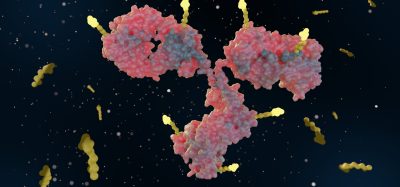New obesity drug RES-010 targets metabolism to prevent weight regain
Posted: 19 September 2025 | Drug Target Review | No comments yet
A first-in-class obesity drug, presented at the European Association for the Study of Diabetes meeting in Vienna, aims to reprogramme metabolism rather than suppress appetite – offering the potential for long-lasting weight loss without regain.


Details of a new drug that aims to treat the underlying causes of obesity are being presented at the annual meeting of the European Association for the Study of Diabetes (EASD) in Vienna, Austria.
Moving beyond appetite suppression
The treatment of obesity has already been transformed by glucagon-like peptide-1 (GLP-1) receptor agonists such as semaglutide, which reduce appetite, slow the release of food from the stomach and increase feelings of fullness.
While effective for weight loss, many patients regain weight after stopping treatment.
While effective for weight loss, many patients regain weight after stopping treatment. Obesity, however, is driven by more than appetite alone. It also involves disrupted lipid and glucose metabolism, changes in adipose tissue and mitochondrial dysfunction leaving plenty of room for the development of new approaches according to Dr Riccardo Panella, co-founder and CEO of Turin-based biotech Resalis Therapeutics.
Automation now plays a central role in discovery. From self-driving laboratories to real-time bioprocessing
This report explores how data-driven systems improve reproducibility, speed decisions and make scale achievable across research and development.
Inside the report:
- Advance discovery through miniaturised, high-throughput and animal-free systems
- Integrate AI, robotics and analytics to speed decision-making
- Streamline cell therapy and bioprocess QC for scale and compliance
- And more!
This report unlocks perspectives that show how automation is changing the scale and quality of discovery. The result is faster insight, stronger data and better science – access your free copy today
Targeting a “master controller” of obesity
Resalis’ new drug, called RES-010, uses an antisense oligonucleotide – a small, lab-made fragment of genetic material – to block a specific RNA molecule known as miR-22.
According to Dr Panella, miR-22 is a ‘master controller’ of key processes in obesity, including lipid m etabolism, mitochondrial activity and adipose tissue remodelling.
The aim is to tackle these processes simultaneously and reprogramme the metabolism, producing long-lasting weight loss. RES-010 is delivered once a week via subcutaneous injection.
Promising pre-clinical results
In pre-clinical studies, obese mice given weekly injections of RES-010 lost around 12 percent more weight than untreated mice. The weight reduction occurred gradually over five months, bringing animals back to a healthy weight.
“Importantly, the treated mice lost weight despite eating the same amount as the untreated mice, which suggests RES-010 isn’t suppressing appetite but reprogramming the metabolism,” says Dr Panella.
The treated mice also maintained their healthy weight even after treatment stopped.
Protecting muscle while reducing fat
The research team tested RES-010 both alone and in combination with semaglutide in mice and non-human primates (NHPs). Results showed the drug selectively targeted fat mass.
The research team tested RES-010 both alone and in combination with semaglutide in mice and non-human primates (NHPs).
“Lean mass, especially skeletal muscle, is central to strength, stamina and blood sugar regulation, and so its loss is potentially harmful,” explains Dr Panella.
NHPs given RES-010 lost 15 percent fat mass and just 1 percent lean mass over ten weeks. In comparison, semaglutide alone led to 16 percent fat mass loss but an 8 percent reduction in lean mass.
Preventing weight regain
Another key difference emerged when treatment was stopped. Animals given semaglutide alone regained weight once they stopped taking the drug. But those given the combination of semaglutide and RES-010 did not regain weight when semaglutide was discontinued.
Even when RES-010 was later withdrawn, no rebound weight gain occurred. No significant side effects were observed in mice or NHPs at therapeutic doses either.
How RES-010 works
Tests in animals and organoid models show how the drug’s mechanism actually works:
“RES-010 works by reprogramming how cells handle fat and energy. Rather than reducing appetite, it changes the way in which the body uses fats, boosts the production and activity of mitochondria, the ‘batteries’ that power cells, and helps convert white fat, which stores energy, into brown fat, which burns it. Because it acts on these fundamental pathways, weight regain is less likely.” Dr Panella says. “RES-010 is pioneering a new class of RNA medicines that reprogramme the body’s metabolism, with the aim of producing long-lasting weight loss and improved metabolic health by, for example, improving liver health.”
First human trial under way
RES-010 is now in its first phase 1 clinical trial in the Netherlands. The randomised, double-blind, placebo-controlled study will enrol up to 80 participants, including people with overweight or obesity, to test the safety and side effects of different doses.
The first participants were treated in November 2024, and initial results are expected at the beginning of 2026.
Related topics
Animal Models, Clinical Trials, Drug Development, Drug Discovery, Drug Discovery Processes, Drug Targets, Metabolomics, Mitochondria, Obesity, RNAs, Therapeutics, Translational Science
Related organisations
European Association for the Study of Diabetes (EASD), Resalis Therapeutics








